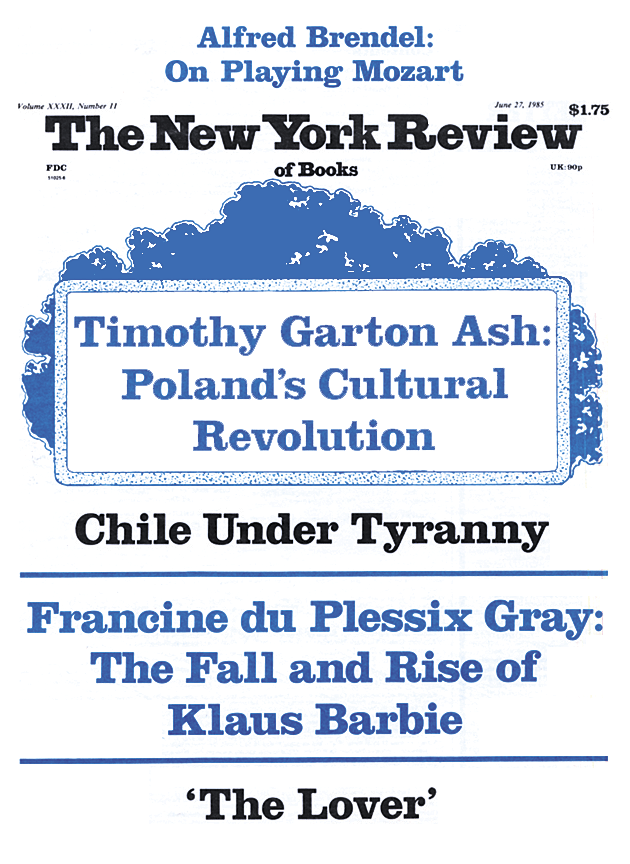In response to:
Success Story from the February 28, 1985 issue
To the Editors:
A reading of Arthur Berger’s eloquent piece in your February 28 issue calls forth a few strongly felt observations. Above all is a sense of satisfaction that Mr. Berger is once again appearing in print as a writer on music. His special understanding of Copland has long been a matter of record.
What Berger identifies as the taint of “popular acclaim” in the most widely known of Copland’s works is certainly palpable according to composers and theorists in a handful of music departments in the Northeast. I would suggest, however, that beyond the pale—that is, in the teeming music departments and conservatories all over the country—the apotheosis of Copland and the enshrinement of his work, in what must be accepted as at least nominally academic circles, is seemingly permanent. Moreover, it is the work of Babbitt, Webern, and to a lesser extent even Carter, which has long operated in a kind of elegant ghetto.
By referring to the issue of simplicity and directness in Copland’s best known works, and by associating “intricacies” with music of academia, Berger portrays a reality more germane to the 1960s than to the 1980s. The situation today—in which minimalist works are nearly everywhere to be heard and discussed at institutions of higher learning (notwithstanding the appearance of Phil Glass in magazine advertising for whiskey)—in which apostles of a New Romanticism, with its concern for directness of appeal by means of abandoning abstraction and drawing from the everyday, are holding some prominent chairs in Composition—this situation would seem to invite the identification of Copland as a messiah of present-day academicism, not its antichrist.
Throughout his long teaching career Berger’s examination—and illumination—of Copland’s music has been both tireless and inspired. Nevertheless, among those on whom the conceptual and the complex exert a stronger claim than the perceptual and directly understood. Copland’s more abstract work will in all probability continue to suffer a somewhat diminished esteem for reasons having to do with his wide popular success. Berger has exposed what amounts to a partisan issue among composers: try though we may, we cannot isolate an individual work and hear it in innocence, free from prior experience. Copland’s popularity itself constitutes, sadly, such a body of experience….
One would like to conclude that a composer seeks and finds his or her voice; that it assumes the form of simplicity or of complexity and abstraction; and that the composer’s choices are made in accordance with his/her own constitution. One may congratulate Mr. Copland on a long and successful career which is arguably sufficient compensation for any sense of exclusion from a particular community of composers.
Joel Eric Suben
College of William and Mary
Williamsburg, Virginia
Arthur Berger replies:
It is good to hear from Mr. Suben that “in the teeming music departments and conservatories all over the country” Aaron Copland’s contribution is enshrined. But I am not aware that this has fostered what I would consider sufficient attention to his “less accessible” music or, more importantly, the publication of serious intellectual studies to elucidate it. Mr. Suben is correct in assuming that I had in mind an attitude toward Copland that prevails in the universities of the Northeast. But the products of these universities are sent out to teach in the major American centers of learning. I have encountered the same attitude on the West Coast. (An exception should be made for the University of California at San Diego, where the leaning is strongly in the direction of the music that has lately arrogated to itself the rubric “avant-garde.”)
The attitude under discussion may very well have had its flowering in the 1950s and 1960s, but the staid old universities take more than a decade or two to change their ways. Another thing to bear in mind is that with all due respect to the vigor and enterprise of the “teeming music departments and conservatories all over the country,” they do not, unfortunately, have as yet the same role as their Northeastern counterparts in dictating intellectual policy and standards.
My concern that Copland is not sufficiently recognized for what he is seems not at all unwarranted when one considers, for example, that the programs of the Boston Symphony just announced for Tanglewood during the coming summer include yet another performance of Appalachian Spring to celebrate Copland’s approaching eighty-fifth birthday (November 14, 1985). In view of his role along with Koussevitzky in establishing Tanglewood as an international center for new music, the occasion would seem to be a most appropriate one for presenting a program of Copland’s less frequently played works, or at least one of them—Connotations, for example, or a symphony.
On the matter of concept and percept, I agree that we tend not to “isolate an individual work…from prior experience,” but I do not agree that we “cannot” attempt to do so. Namely, we can approach the work of art with what Ruskin called the “innocent eye,” and if the art be music, thereby hope to distinguish what we actually “hear” from what, on the basis of previous knowledge, we “think” we hear.
This Issue
June 27, 1985


